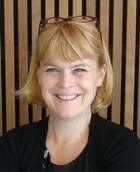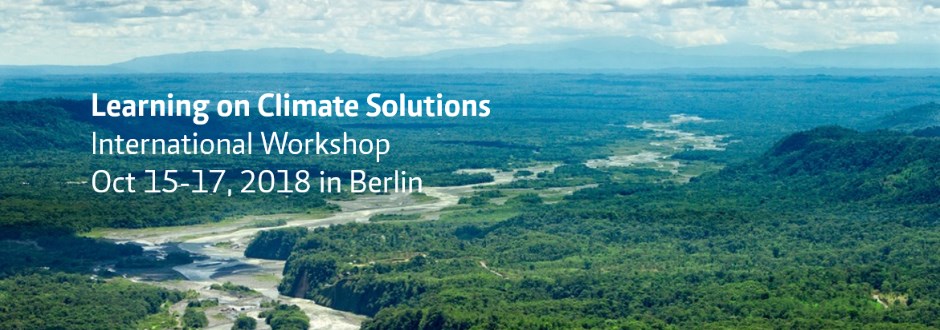Scientific Committee

Jan Christoph Minx is Professor for Climate Change and Public Policy in the Priestley International Centre for Climate at the University of Leeds and head of the working group <link en research working-groups applied-sustainability-science.html _blank sustainability>Applied Sustainability Sciencee at the Mercator Research Institute on Global Commons and Climate Change. As Head of the Technical Support Unit Jan coordinated the Fifth Assessment Report (AR5) of the IPCC on climate change mitigation with his team. In AR6 he is a lead author in the chapter on “emission trends and drivers”. His recent scientific work is concerned with the development of big data applications for research synthesis and global environmental assessments in times of big (i.e. vast and fast-growing) literature. Jan develops and promotes meta-analytical methods in the social sciences and humanities to stimulate systematic learning and studies processes at the science-policy interface.

Felix Creutzig is Professor at the Technical University Berlin teaching Sustainability Economics of Human Settlements, and group leader at the Mercator Research Institute on Global Commons and Climate Change (MCC). Professor Creutzig is a coordinating lead author of the Sixth IPCC Assessment Report (AR6) and was also lead author of IPCC AR5 on transportation, coordinating the appendix on bioenergy. He is on the advisory board of Environmental Research Letters and on the editorial board of Global Sustainability. Previous appointments include postdoc positions at Princeton University, University of Berkeley, and the Energy Foundation China in Beijing. From 2009 to 2011, he was president of Netzwerk Europa, the alumni association of the Studienkolleg zu Berlin. Felix Creutzig obtained his PhD in Computational Neuroscience at the Humboldt-Universität zu Berlin after graduating in Theoretical Physics from the University of Cambridge.

Robbert Biesbroek is Assistant Professor at Wageningen University & Research, the Netherlands. His research interests include comparative public policy, mechanisms of complex decision making, dynamics of policy (dis)integration, and the political and bureaucratic responses to climate change adaptation. He received his PhD from Wageningen University in 2014. In 2014 he co-founded TRAC3 an international collaboration for developing conceptual, methodological, and empirical approaches for tracking adaptation across scales and contexts. He is recipient of a Dutch NWO-VENI research grant (2018-2022) and (co)authored over 40 scientific articles in the fields of public policy and environmental studies. Dr. Biesbroek currently serves as Editor for the scientific journal Regional Environmental Change. He is selected as Coordinating Lead Author for the IPCC AR6 report on Impacts Vulnerability and Adaptation, chapter 13: Europe (2018-2022).


Lea Berrang Ford is a Professor and Research Chair in Climate and Health in the Priestley International Centre for Climate at Leeds University and a Royal Society Wolfson Research Merit Scholar. She is a former Canada Research Chair and Trottier Fellow in Science and Public Policy. Her research focuses on the nexus of climate change and health, and novel metrics for tracking adaptation to climate change. She is a co-founder of TRAC3: Tracking Adaptation to Climate Change Consortium, and co-leads the Indigenous Health Adaptation to Climate Change project in the Canadian north, the Peruvian Amazon, and southwestern Uganda. She is the co-editor of the book “Adaptation in Developed Nations: from Theory to Practice,” a lead author on the 2018 UNEP-DTU Adaptation Gap Report (Assessing Global Adaptation Progress), and a Lead Author on the IPCC’s Assessment Report 6. Her research on climate change adaptation is widely cited in the IPCC's 5th Assessment Report (WGII, 2014).

Jason A. Lowe is a Professor in interdisciplinary climate research in the Priestley Centre at the University of Leeds. He is also Head of Climate Services for Government and Deputy Director of the Met Office Hadley Centre. His work focuses on making climate science more applicable to real users. As part of this Professor Lowe leads the update of the UK climate projections, which will be released later in 2018. His research interests are broad and include sea-level rise, mitigation pathways, and carbon budgets, potentially dangerous climate change and impacts. Professor Lowe is also interested in science communication and directs a team focused on integrated the findings from the Hadley Centre for policy makers. Highlights of his work include playing a major part in setting up and performing the global climate simulations that informed the carbon budgets in the UK Climate Change Act, and leading the climate science component of the Thames Estuary 2100 project – which considered the need to upgrade the Thames Barrier.





